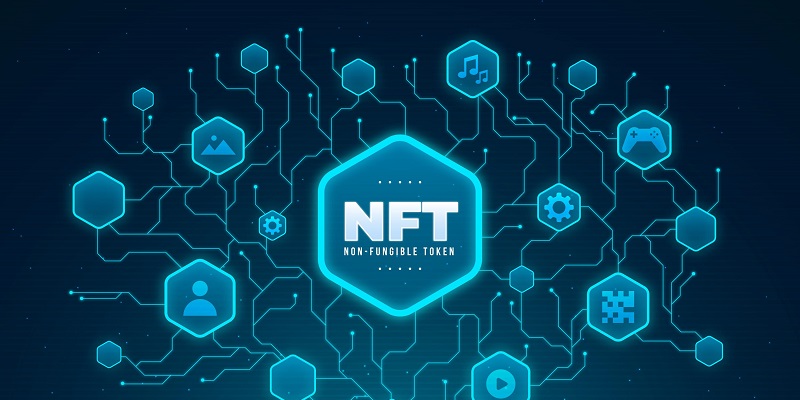Tokenization, the process of creating digital counterparts of real-world assets, has emerged as a transformative force in the world of finance. However, its true potential goes beyond mere replication. In this article, we delve into the current state of tokenization, highlighting the failures resulting from a lack of innovation, and emphasizing key aspects often overlooked. We then explore how enhancements in tokenization, such as tokenizing liabilities and cash flows, and making contracts machine-readable and executable, can revolutionize the financial industry.
The current state of tokenization
Despite its promise, tokenization in finance has often fallen short due to a lack of innovative solutions. Current failures are not a result of a lack of potential, but rather a failure to harness it. It is crucial to embrace innovative approaches to unlock the true value of tokenization.
While tokenization presents immense opportunities, certain crucial aspects have often been overlooked. To avoid future crises, it is essential to tokenize liabilities and cash flows related to underlying assets, ensuring that they are machine-readable and machine-executable. Ignoring these aspects can hinder the progress and effectiveness of tokenized financial systems.
Enhancing Tokenization
To create a resilient and efficient tokenized financial ecosystem, it is imperative to tokenize not only the assets, but also the liabilities and cash flows associated with them. By providing a comprehensive view of the entire financial system, tokens can enable efficient tracking, auditing, and management of financial instruments.
The traditional approach to tokenization mostly entails representing contracts as digital documents. However, to ensure true innovation, it is crucial to make these contracts machine-readable and machine-executable. Smart financial contracts, empowered by advanced technologies such as blockchain, introduce automation, transparency, and greater efficiency into the financial ecosystem.
Innovations in Tokenization
The current tokenized financial product typically replicates a document in digital form. However, true innovation lies in moving beyond this limited representation. By leveraging emerging technologies, financial institutions can create tokens that not only reflect the terms and conditions of a contract but also possess the ability to automate various financial processes, improving overall efficiency.
Implementing Open Banking standards
Open banking standards provide a framework for securely and efficiently sharing financial data across different institutions. By implementing open banking standards, it becomes easier to track liabilities and cash flows, ensuring seamless integration and interoperability among tokenized assets held by various entities.
Smart financial contracts, built on blockchain technology, offer the potential for higher information quality and transparency. These contracts automate processes, enforce predefined conditions, and enable secure and transparent transactions. They enhance trust, reduce intermediaries, and mitigate the risk of fraud, paving the way for a robust tokenization ecosystem.
The Role of ACTUS in Tokenization
ACTUS, a standardized framework for financial contracts, plays a vital role in tokenization. Designed to represent a wide range of financial instruments, ACTUS improves regulatory reporting across all sectors and streamlines financial operations at the enterprise level. By adopting ACTUS, financial institutions can enhance the accuracy, consistency, and comparability of financial data, ensuring reliable tokenization.
ACTUS helps eliminate ambiguity and complexity in financial contract representation, leading to more efficient regulatory reporting. By standardizing financial contracts, it becomes easier for regulators to monitor the financial system, contributing to stability and transparency. Additionally, ACTUS facilitates seamless integration and interoperability, streamlining financial operations and reducing operational risks.
The Impact of Blockchain on Finance
Blockchain technology offers immense potential to transform the financial sector. Through its decentralized and immutable nature, blockchain can revolutionize financial transactions, making them transparent, secure, and efficient. This redefinition of finance has the power to democratize access to financial services, empower individuals, and foster financial inclusion.
Blockchain’s decentralized architecture eliminates the need for intermediaries, reducing costs associated with financial transactions. By embracing blockchain in tokenization efforts, financial institutions can offer low-cost financial services, making financial inclusion a reality for individuals and businesses around the globe.
Tokenization has the potential to reshape the financial industry, but only through innovative approaches and careful consideration of key aspects. By tokenizing not just assets but also liabilities and cash flows, making contracts machine-readable and executable, and embracing open banking standards and smart financial contracts, we can create a more transparent, efficient, and secure tokenization ecosystem. Moreover, the adoption of standardized frameworks like ACTUS further enhances the benefits of tokenization, improving regulatory reporting and financial operations. With blockchain’s potential to redefine finance and reduce costs, a future where tokenization becomes the norm is within reach. It is crucial for financial institutions and regulators to embrace these opportunities and collaboratively drive the transformation forward.

